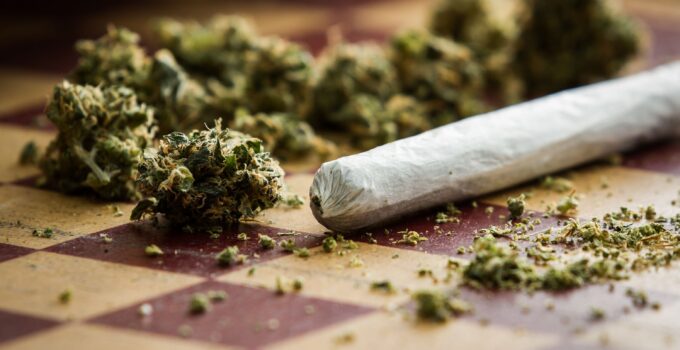Cannabis, often known as marijuana, is a plant used for medicinal or recreational purposes. Its main psychoactive component, THC, alters consciousness, mood, and perception. Cannabis contains CBD as well, which doesn’t induce a “high” but may have therapeutic effects.
Historically, cannabis has been used for pain relief, relaxation, and recreational enjoyment. Its legality varies globally, reflecting diverse cultural and legal attitudes.
Understanding Anxiety
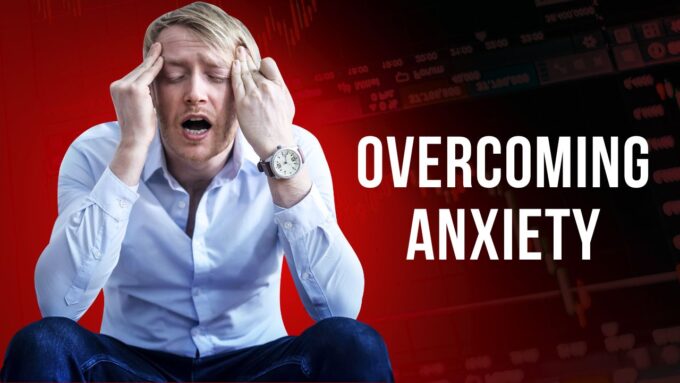
Source: herbtib.com
Anxiety is a natural reaction to stress, marked by fear or apprehension about future events. It’s widespread, manifesting as disorders like generalized anxiety, panic attacks, or social anxiety. It interferes with everyday life, triggering physical symptoms such as an increased heart rate, and psychological issues like persistent worry. Recognizing its triggers and symptoms is crucial for managing it effectively.
This condition can stem from various factors including genetics, brain chemistry, life events, and environmental stressors. Proper diagnosis and understanding its multifaceted nature are key to finding the right treatment approach.
The Connection Between Cannabis and Anxiety
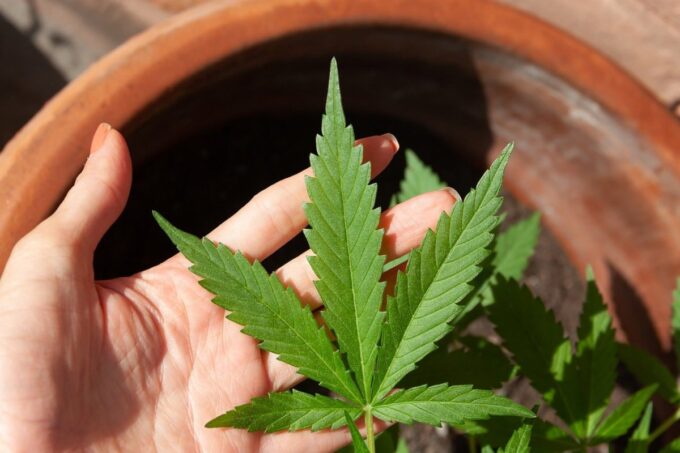
Source: upi.com
The link between cannabis and anxiety is intricate. THC, the psychoactive component, can both soothe and worsen it. Its effect is influenced by individual physiology, the cannabis variant used, and the method of consumption.
Some find relief from anxiety with marijuana, while others face increased condition or paranoia. CBD, a non-psychoactive component, is noted for its potential in reducing anxiety without THC’s mind-altering effects. The interaction between cannabis compounds and the brain’s endocannabinoid system plays a pivotal role in its varied effects on this condition.
Expert Opinions on Cannabis and Anxiety
Experts in the field remain divided regarding the use of cannabis for treating anxiety. Proponents highlight its therapeutic potential, particularly in strains rich in CBD, known for their calming effects. However, skeptics point to the risks, such as increased anxiety and potential exacerbation of other mental health conditions.
Ongoing research is critical in demystifying these aspects. The consensus is that cannabis’s effects on mental health vary greatly among individuals, calling for a tailored approach in its application for anxiety treatment. Experts emphasize the necessity for more comprehensive clinical studies to develop more definitive guidelines for its therapeutic use.
They also call for an understanding of long-term impacts and interactions with other medications, which are currently under-researched areas. Moreover, experts are also showing interest in finding the best edible cannabis for a substitute intake.
Pros of Cannabis Use for Anxiety
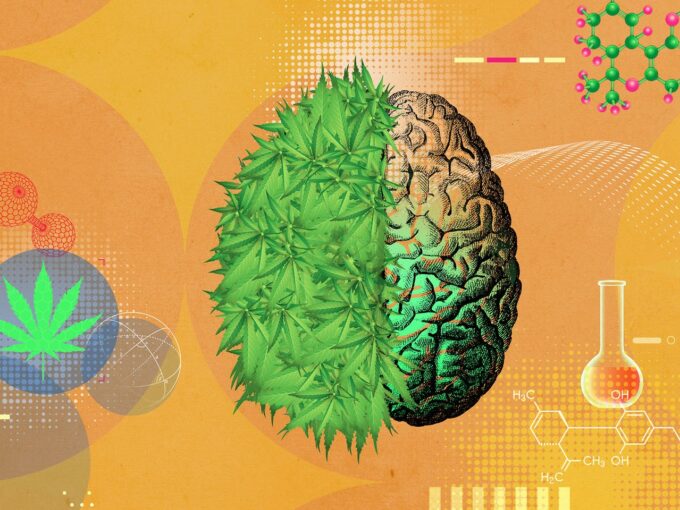
Source: wsj.com
Cannabis has shown significant potential in alleviating anxiety for some individuals. It is known to induce relaxation, improve mood, and enhance sleep quality, all of which are essential in managing symptoms. Strains with a higher concentration of CBD are particularly associated with reducing anxiety without the psychoactive effects caused by THC.
Numerous users report a heightened sense of calmness and well-being, positioning cannabis as a viable alternative to traditional medications. This is especially beneficial for individuals who have not found relief through standard treatment options.
The use of marijuana in such scenarios provides hope and a new path for managing symptoms, although it should be approached with consideration of individual reactions and under medical supervision.
Cons of Cannabis Use for Anxiety
Conversely, cannabis use can also lead to increased anxiety in certain individuals. Strains with high THC content are known to potentially induce paranoia and exacerbate anxiety symptoms. Chronic use might result in dependency and a range of withdrawal symptoms, including a resurgence or worsening of the condition.
The unpredictability of THC/CBD ratios and the absence of standardized dosing guidelines further complicate its application in its management. These factors underscore the importance of selecting strains judiciously and proceeding with caution, particularly under the guidance of a medical professional.
This approach is vital to minimize the risk of adverse effects and to ensure that marijuana use for this condition is both safe and effective. Patients are encouraged to closely monitor their responses and adjust their usage as needed, in consultation with their healthcare providers.
Dosage and Consumption Methods
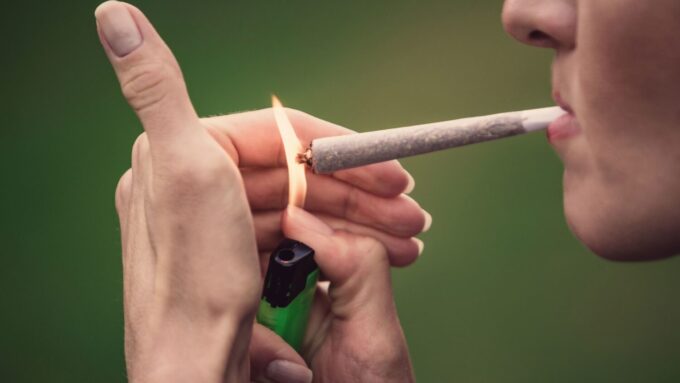
Source: cnn.com
Dosage and consumption method are critical in determining how cannabis affects anxiety. Inhalation methods like smoking or vaping provide swift relief but challenge precise dosing. Edibles offer prolonged effects, yet they’re slower to kick in and harder to dose accurately.
Products low in THC and high in CBD are often recommended for its management. However, determining the optimal dosage involves trial and error, underscoring the importance of starting with small doses and gradually adjusting as needed.
Potential Risks and Side Effects
Using cannabis, especially strains high in THC, carries potential risks and side effects. These include impaired memory, altered judgment, and coordination difficulties. Long-term usage might lead to tolerance and dependency.
The effects on developing brains in adolescents are particularly concerning. Weighing these risks against potential benefits is crucial. Users should be aware of these potential consequences and make informed decisions, ideally under medical guidance, to minimize risks.
The Importance of Consultation
Consultation with healthcare professionals is crucial when considering cannabis for anxiety. They can offer advice tailored to individual health history and symptoms. Doctors can guide safe consumption methods, discuss potential drug interactions, and navigate legal aspects.
Such professional input is essential for a safer approach in using marijuana for this condition, ensuring that the benefits outweigh the risks and that the treatment aligns with the individual’s overall health strategy.
Alternative Approaches to Anxiety

Source: balancehealth.com.hk
Apart from cannabis, there are many anxiety treatments. These include therapies like cognitive-behavioral therapy, medications such as SSRIs, lifestyle adjustments, and mindfulness practices.
Exploring these options, perhaps in conjunction with marijuana, can lead to a comprehensive management strategy. Such a holistic approach allows individuals to address anxiety from multiple angles, improving the likelihood of finding an effective treatment plan that suits their specific needs and lifestyle.
Personal Experiences and Testimonials
Personal accounts regarding cannabis and anxiety differ greatly. Some individuals attribute significant improvements in their lives to cannabis, finding relief where other methods failed. Conversely, some recount negative experiences where marijuana exacerbated their anxiety.
These personal stories underscore the subjective nature of marijuana as a treatment and highlight the importance of a tailored approach. They also stress the necessity of considering individual differences in biology, lifestyle, and response to marijuana when choosing it as a treatment option.
Conclusion: Navigating Cannabis and Anxiety
Navigating the use of cannabis for anxiety is a personal journey. It requires understanding the complex effects of cannabis, consulting with healthcare professionals, and considering personal health and legal implications. While it offers potential benefits, its variable effects demand a cautious and informed approach. As research evolves, clearer guidelines and recommendations will emerge, aiding those considering marijuana for its management.

